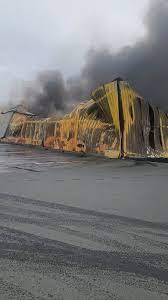
France has declared a state of emergency in New Caledonia, a French overseas territory in the Pacific, following violent protests against electoral reforms that resulted in casualties, including the death of a police officer and three others. The unrest, described as the worst in decades, has highlighted longstanding tensions over Paris’ role in the archipelago.
The protests erupted as French lawmakers were set to vote on electoral reforms that would expand voting rights in New Caledonia. However, critics argue that these changes could marginalize the Indigenous Kanak population and favor pro-French politicians. The National Assembly approved the revision, but final approval from both chambers of parliament is still pending.
In response to the escalating violence, French President Emmanuel Macron’s office released a statement condemning all forms of violence and emphasizing a relentless response to restore order. French Prime Minister Gabriel Attal also expressed concern over the intensity of the violence and stated that the state of emergency would enable the deployment of significant resources to restore order.
Under the state of emergency, local authorities have been granted expanded powers to maintain public order. This includes measures such as restricting public access to certain areas, conducting searches, and preventing individuals deemed a threat to public safety from entering specified zones.
The unrest has brought attention to the complex dynamics in New Caledonia, where tensions between the Kanak people, who seek independence, and descendants of European colonizers, who wish to remain part of France, have persisted for years. The recent electoral reforms have further strained these tensions, leading to widespread protests and violence.
The French High Commission reported numerous incidents of arson, looting, and attacks on public infrastructure. An attempted prison break was also reported. The government has deployed additional police officers and gendarmes to reinforce security measures, including imposing a curfew and banning gatherings in the capital, Noumea.
New Caledonia’s history is marked by its mineral-rich resources and a complex relationship with France. Annexed by France in 1853, the territory has experienced decades of political tensions, culminating in the 1998 Noumea Accord, which provided for referendums on independence. Despite rejecting independence in past votes, the issue remains a source of contention and ongoing debate in the region.
Sources By Agencies


